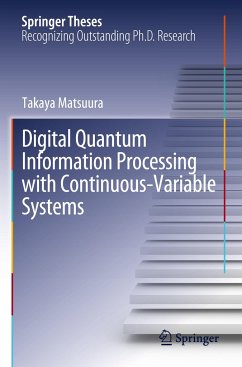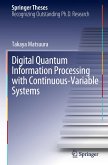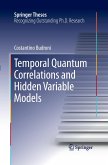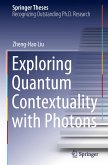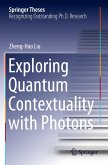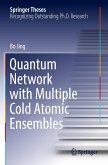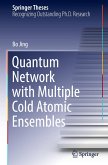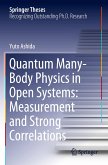The book provides theoretical methods of connecting discrete-variable quantum information processing to continuous-variable one. It covers the two major fields of quantum information processing, quantum communication and quantum computation, leading to achievement of a long-sought full security of continuous-variable quantum key distribution (QKD) and proposal of a resource-efficient method for optical quantum computing.
Firstly, the book provides a security of continuous-variable QKD against arbitrary attacks under a realistic condition such as finite communication rounds and the use of digitized information processing.
The book also provides the unified view for conventionally used approximate Gottesman-Kitaev-Preskill (GKP) codes, which encodes qudits on a continuous-variable system, enabling direct comparison between researches based on different approximations. The book finally proposes a resource-efficient method to realize the universal optical quantum computation using the GKP code via the direct preparation of the GKP magic state instead of GKP Pauli states. Feasibility of the proposed protocol is discussed based on the existing experimental proposals for the GKP state preparation.
Firstly, the book provides a security of continuous-variable QKD against arbitrary attacks under a realistic condition such as finite communication rounds and the use of digitized information processing.
The book also provides the unified view for conventionally used approximate Gottesman-Kitaev-Preskill (GKP) codes, which encodes qudits on a continuous-variable system, enabling direct comparison between researches based on different approximations. The book finally proposes a resource-efficient method to realize the universal optical quantum computation using the GKP code via the direct preparation of the GKP magic state instead of GKP Pauli states. Feasibility of the proposed protocol is discussed based on the existing experimental proposals for the GKP state preparation.

